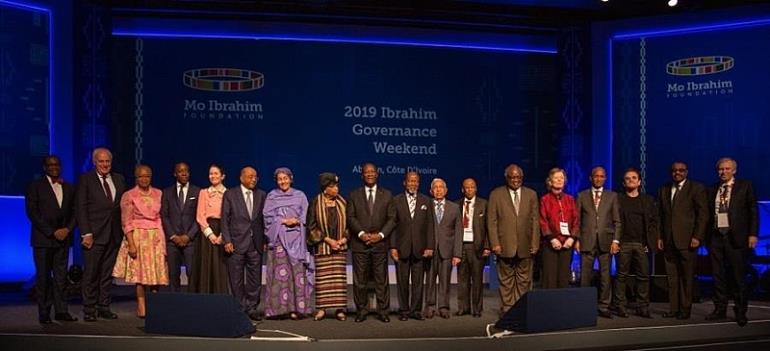
ABIDJAN, 8 April 2019 – Debating and discussing African migrations, youth, and jobs, the 2019 Ibrahim Governance Weekend, held in Abidjan 5-7 April, heard that the global view of African migrations urgently needs to be reset since distorted data leads to inadequate policies. African migrations present an opportunity for both the continent and the world, and yet today this topic triggers an emotional reaction and is generally misunderstood.
Driven by the need for jobs and economic opportunity, most African migrations begin and end on the continent. Their arrival in host countries is welcomed, with many Africans saying they would like more migrants in their country. The number travelling beyond Africa are comparatively few, totalling only 14% of the global migrant population in 2017 (significantly less than Asia, 41% and Europe, 24%).
Mo Ibrahim, Chairman of the Mo Ibrahim Foundation, said: “Migration in Africa, and around the world, is largely about aspiration, not desperation. Africans leaving their home countries are looking for the chance to work and contribute to their host countries. African governments should welcome migrants while ensuring that their own citizens - our continent’s greatest asset - have the education and economic opportunities they deserve. Now is the time to take action before it’s too late for our young people.”
The Ibrahim Forum brings together a powerful coalition of African and global leaders to discuss an issue that is critical to the continent’s future. The 2019 Ibrahim Forum focused on the Foundation’s latest report, Africa’s Youth: Jobs or Migration? In recognition of the importance of young people to Africa’s development, this year the Foundation welcomed back the Now Generation Forum, a meeting of young leaders from 35 countries whose recommendations fed into the discussion.
The first session of the Ibrahim Forum - Setting the picture right on African migrations - explored African perspectives on migration, highlighting that human mobility is not a recent phenomenon but a dynamic that has contributed to progress over many centuries.
Ellen Johnson Sirleaf, former President of Liberia, 2017 Ibrahim Laureate and Chairperson of the High-Level Panel on International Migration in Africa, said: “In recent times, there has been a lot of movement of young Africans across borders in search of opportunity. This has created a fear and a very emotional response…but there is no migrant crisis. The majority of those who cross borders do so legally; they carry with them capital, knowledge, skills, technology; they pay taxes; and they form a sizeable part of the GDP of their host countries.”
Vera Songwe, Executive Secretary of the United Nations Economic Commission for Africa, highlighted how a lack of economic opportunity is driving Africans to leave their home countries: “The conversation on migration is essentially a conversation on governance and what our leaders need to do to ensure Africans do not go outside the continent. 80% of those Africans migrating say they are doing do because they don’t have jobs, because our countries don’t have the right business or policy environments.”
In the second session – The African youth bulge confronted by jobless growth – panellists discussed the current and future challenges of the African job market, including the unexploited potential of agriculture and the changes expected from the Fourth Industrial Revolution.
Abdourahmane Cissé, Minister of Petroleum, Energy and Renewable Energy of Côte d’Ivoire, outlined his country’s efforts to create economic opportunities for its youth. “Innovation is key, yes, but if you want people to innovate, you need to ensure they have access to the necessary resources, particularly information technology. In Côte d’Ivoire, we have focussed on vocational training and technical skills, and invested in areas that help students access jobs, including creating tax incentives to provide internships and hire recent graduates. We need to see many more young people engaged in politics so that they can be part of the discussions about their future.”
Hailemariam Desalegn Boshe, former Prime Minister of Ethiopia, said: “Our youth are deeply dissatisfied. They feel economically, socially and politically marginalised. African leaders and civil society should address these issues with a sense of urgency. Let’s look at the education and skills that our young people actually need, focussing on what is necessary for the current economic situation in Africa.”
Akinwumi Adesina, President of the African Development Bank Group, highlighted the importance of involving more young Africans in agriculture: “We always talk about the great potential of our continent, but nobody can eat potential. We need to take this great demographic asset that we have - our young people - and turn it into an economic powerhouse, both for ourselves and the rest of the world. We’ve got to get young people into agriculture and create a new group of ‘agri-preneurs’”.
Natasha Kimani, Head of Programmes at Well Told Story and a member of the Now Generation Forum, argued for a fresh perspective. “We need to change how we talk about young people and how we talk to young people. Instead of assuming we know what they need, why don’t we ask them? And as young people, if we want to thrive, we must hold our governments accountable. We need to put our leaders on the spot and ask them difficult questions. Don’t be afraid to challenge authority and ask for what you deserve – because the more you ask, the more you get!”
In the third session - The way forward: bolstering mobility, updating skills, sharing responsibilities - panellists explored options to strengthen the capacity of the continent to make the most of its greatest resource, its human capital, and ensure no one if left behind.
Arancha González, Executive Director of the International Trade Centre, said: “The countries where mobility works are the countries which manage mobility, that don’t leave mobility purely to market forces…We have to recognise that migrants are often different - different in religion, culture, colour, sexual preference - this also needs to be discussed and managed. Mobility introduces diversity and diversity means strength.”
Festus Mogae, former President of Botswana and 2008 Ibrahim Laureate, stressed the importance of responsible leadership in managing migration. “African leaders and governments should go out of their way to explain to their populations that migrants often benefit the countries into which they migrate, correcting the misperception that migrants are taking local jobs.”
Closing the session, Oumar Seydi, Africa Director of the Bill & Melinda Gates Foundation, highlighted the challenge of population growth. “The elephant in the room is family planning. If you look at the data, you see that the countries with the highest population growth have also tended to be the poorest ones. In our experience, investing in family planning is one of the most effective tools that countries have to break the poverty cycle. It enables women to plan their futures and fulfil their potential.”
The 2019 Ibrahim Governance Weekend opened with a Leadership Ceremony, celebrating progress in African leadership and governance. The evening featured a special tribute to Kofi Annan, reflecting on the legacy he left and the inspiration he continues to be. Thoughts and memories were shared by, among others: Mo Ibrahim, Chairman of the Mo Ibrahim Foundation; H.E. Amina J. Mohammed, Deputy Secretary-General of the United Nations; Kojo Annan; Mark Malloch-Brown, former United Nations Deputy Secretary-General; and Bono.
Addressing over 1,200 guests, His Excellency President Alassane Ouattara said: “Kofi Annan was more than a friend of Côte d’Ivoire, he was the son of our country and a brother who shared our pain. The name of Kofi Annan is tightly linked to the return of peace and security in our country. He was determined not to let our country sink and did not hesitate to use the full authority of the United Nations and his exceptional ability for negotiation. This nation owes him a lot.”
The weekend wrapped up with a star-studded music concert at the Palais de la Culture featuring some of Côte d’Ivoire’s and Africa’s biggest stars, including: Fally Ipupa, Youssou N'Dour, Serge Beynaud and Safarel Obiang. Addressing the crowd of young Ivorians, Mo Ibrahim said: “You are the future”.
The 2019 Ibrahim Forum discussed latest findings from the Ibrahim Forum Report, including:
- In 2017, migrants represented only 3.4% of the global population, a marginal increase from 2.9% in 1990
- African migrants in 2017 amounted to 2.9% of the continent’s population
- African migrations represented around 14% of the global migrant population, much less than Asia and Europe’s shares (41% and 24%) in 2017
- In 2017, the top ten bilateral corridors in Africa accounted for less than the single bilateral corridor between Mexico and the US
- Africa itself hosts a growing part of the global migrant population (+67% since 2000)
- Rwanda is the third most welcoming country to migrants at a world level. Egypt is the least accepting on the continent
- More than 70% of sub-Saharan African migrants move within the continent
- South Africa receives the largest share of African migrants, followed by Côte d’Ivoire and Uganda
- Almost 80% of African migrants are driven by the hope for better economic or social prospects
- Migrants spend approximately 85% of their incomes in their destination country
- The estimated contribution of migrants to local GDPs is estimated at 19% in Côte d’Ivoire, 13% in Rwanda and 9% in South Africa.
- Insecurity is not the major factor for African migrations: in 2017, refugees accounted for only around 20% of African migrants
- Almost 90% of African refugees stay within the continent
- Italy, Germany and France altogether host less than 4% of African refugees
- Around 60% of Africa’s population is currently less than 25 years old, and more than a third is aged between 15-34
- Between 2019 and 2100, Africa’s youth is expected to grow by 181.4%, while Europe’s will shrink by 21.4% and Asia’s by 27.7%
- Only half of those who would qualify for lower secondary education in sub-Saharan Africa, are enrolled
- The average match between education and skills needed by businesses is worse in Africa than in the rest of the world
- Unemployment is considered by far the most important problem by African youth
- In Egypt, Ghana, Morocco, Nigeria and South Africa at least 75% of the youth think that their governments do not care about their needs.
Ibrahim Governance Weekend
The Ibrahim Governance Weekend is the flagship event of the Mo Ibrahim Foundation, held every year in a different African country.
This three-day event convenes prominent African political and business leaders, representatives from civil society, multilateral and regional institutions as well as Africa’s major international partners to debate issues of critical importance to Africa.
The weekend begins with a Leadership Ceremony, where this year we celebrate the life of Kofi Annan. A whole day is then dedicated to the Ibrahim Forum, a high-level discussion forum which tackles the challenges facing Africa and sets out priorities for action. The weekend concludes with a public concert highlighting some of the best performers of the continent.
Read Full Story
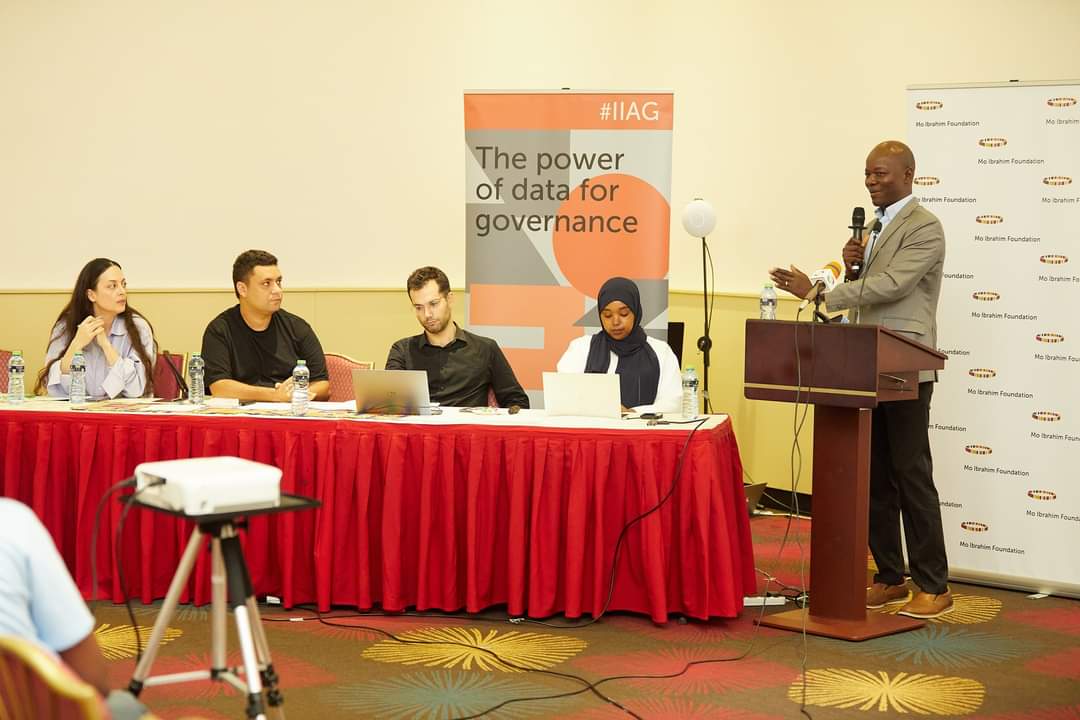



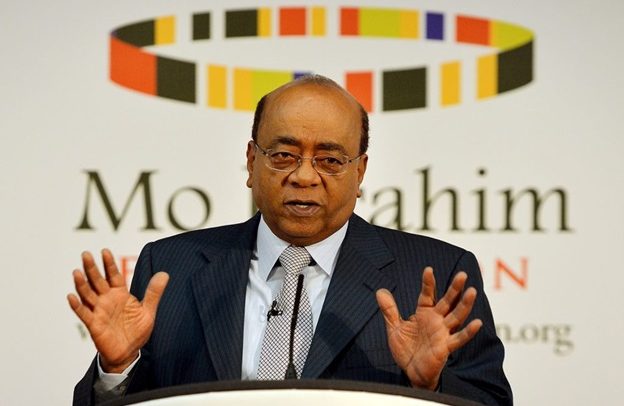














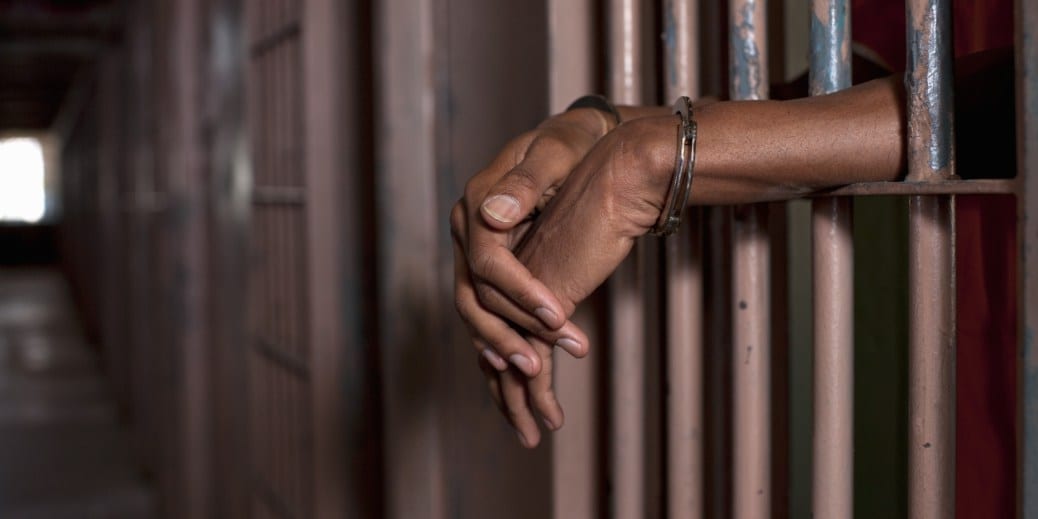

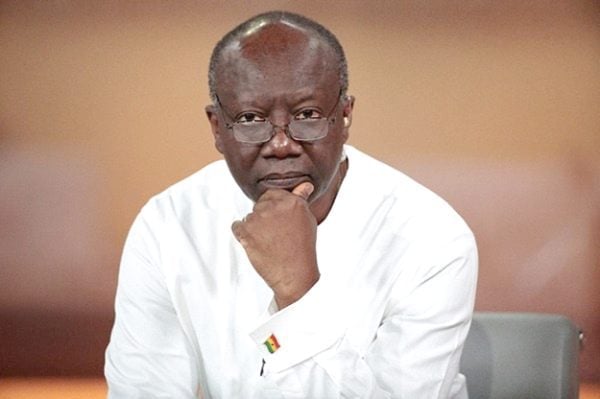


Facebook
Twitter
Pinterest
Instagram
Google+
YouTube
LinkedIn
RSS